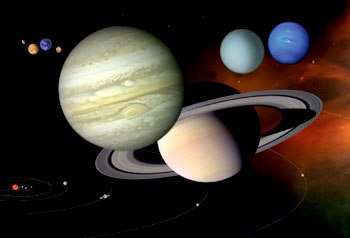You can explore but never own
Where ever mankind may go, lawyers are quick to follow - and there
is one Sri Lankan attorney among them
by Aditha Dissanayake
|

Dr. Nandasiri Jasentuliyana
President of the International Institute of Space Law (IISL) Dr.
Jasentuliyana holds advanced degrees in Law and International
Relations from the University of Ceylon, London and McGill, and
is an Attorney-at-Law. He was formerly the Deputy
Director-General of the United Nations Office at Vienna and
Director of the Office for Outer Space Affairs.
|
Will there be divorce laws on Mars? How will we interact with
extraterrestrials if we ever meet them? Should we privatize the craters
on the moon?
Even though I am dying to ask these questions when I meet Dr.
Nandasiri Jasentuliyana recently I hold my counsel, mainly because with
living in the moon still a distant dream, a question about making the
best use of its craters seem premature.
So, as I wait for my appointment with him I decide to begin the
interview with a simple question, what is space law? And as the digits
on the clock on my mobile changes rapidly with Dr. Jasentuliyana yet to
make an appearance, I recall reading about a space lawyer called what's
his name who had not only claimed he owned the sun but declared he was
not liable for any damages caused by his property!
Then on the internet I had come across the three Yemeni brothers who
had filed suit against the United States for trespassing in 1993. The
property in question? The planet Mars. The brothers claimed to have
inherited the planet 3,000 years ago from their ancestors.
The US sent attorneys to Yemen to fight the charges. Then again,
there is the website called The Lunar Embassy, a US-based company who
offers interested buyers one acre of lunar property for $49.99!
|

“The earth is the cradle of humankind, but one cannot live in
the cradle forever.” Konstantin Tsiolkovsky, 1895 |
Can we earthlings grant rights to property in space? By the time Dr.
Jasentuliyana reaches me I have two questions waiting for him to be
answered. But not so fast. First he has a lot of catching up to do.
Having lived abroad for the greater part of his life, he has
questions of his own to ask me. Where is H.L.D Mahindapala now? Is
Lalith Edrisinghe still at the Sunday Observer? When I have finally
brought him up to date with the events of the past few years, he says
"Ok. Go ahead".
What is space law? Dr. Jasentuliyana repeats the question, rolling it
on his tongue as if he is tasting a piece of chocolate brought from
Jupiter. Then comes the answer "Space law is no different to any other
law. It is similar to international law." In short space law simply
means keeping order in space.
As the President of the International Institute of Space Law (IISL)
Dr. Jasentuliyana, who happens to be one of those "space lawyers" who
has studied the exploration of outer space with careful intent says he
was lucky to have joined the United Nations as a young man in 1964 when
these laws were being negotiated.
According to Dr. Jasentuliyana the main purpose of space law is to
preserve outer space from the lawless free-for-all that characterized
exploration and colonization here on Earth. "In the past you claimed a
piece of land as your own by hoisting your flag on it.
Your flag meant you had total control. This does not apply to outer
space. Space is the province of mankind. No country can claim it. You
can explore, but never own".
In order to ensure that space remains a "common thing," space lawyers
have drafted five international treaties under UN direction. The Outer
Space Treaty of 1967 provides the basis of all space law with its clear
decree that no nation can claim ownership to any part of it, and all
nations must agree to its peaceful use. The treaty was signed by all
major space powers and remains the guiding light of space initiatives.
"The treaty ensured that the rivalries on earth will not be extended
to space" says Dr. Jasentuliyana and recalls that when the United
Nations initiated the drafting of space law of which he was lucky to be
a witness, it was rather overwhelming.
There had been many forces, scientists, engineers, governments and
the United Nations all of whom had come together to make sure space will
be used for the benefit of mankind.
A few of those same forces had also pitched into debates over
asteroid ownership and guidelines for approaching extraterrestrials and
Dr. Jasentuliyana says there is a protocol to adhere to, if ever we come
across extraterrestrials.
But beyond this, no laws have been formed with regard to living
beings we might encounter in outer space.
Today, having retired from the main stream of space law Dr.
Jasentuliyana says he has left the rest to the younger generations.
Letting "life for ever dying,(to slightly misquote H.G Wells) to be born
afresh, to stand upon this earth as upon a footstool, and stretch out
its realm amidst the stars.
[email protected]
|
